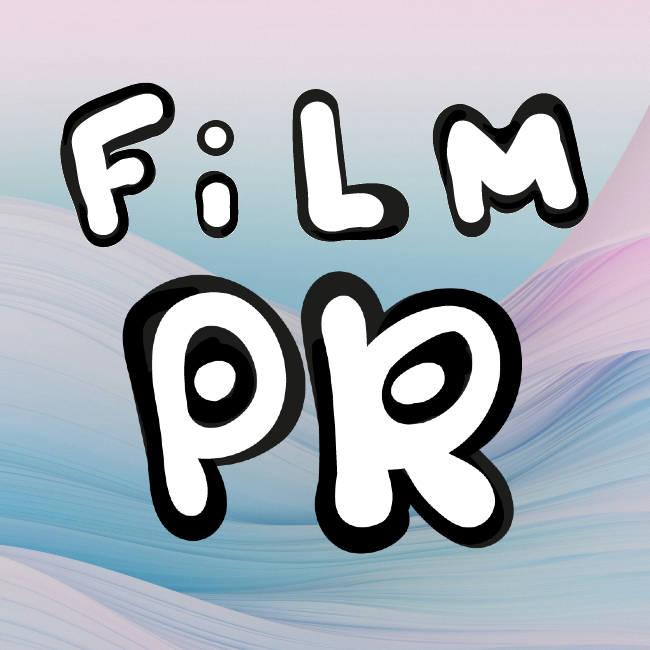Kate Huang • October 27, 2025
How film festivals can help a film attract media attention and get distribution deals.
- Indie Film PR

Author: Kate Huang
Kate Huang is a student at Chapman University studying Public Relations, Advertising, and Entertainment Marketing. She has always been interested in working within the fast-paced entertainment industry, but never thought it was possible, until she discovered her love for PR and marketing and the extreme need within all industries for PR professionals. At PRontheGO, she focuses on indie film PR.
Film festivals are one of the most effective ways for independent filmmakers to gain exposure and establish their credibility within the industry. Festivals like Sundance and Tribeca, to name a few, are hotspots for critics, distributors, and other industry professionals. Smaller local film festivals can help filmmakers connect with a more targeted audience. In addition to exposure, festivals can also provide networking opportunities, allowing indie filmmakers to meet with investors, potential collaborators, and members of the press. It also gives filmmakers the opportunity to speak about the filmmaking process and their inspirations, which can help a film generate publicity and gain momentum, through attending Q&As, red carpet events, and panels. A strong debut at a festival can significantly raise the film and filmmakers profile and lead to a promising future and other opportunities, even if the project does not get distributed immediately.
Indie filmmakers best begin by identifying festivals that align with their film’s audience and tone, whether it be a smaller niche festival or a larger more popular festival. Each festival has their own unique rules and requirements, so carefully evaluating each one is crucial. Most applications require a final cut of the film, a director’s statement, and other promotional materials like posters or a trailer. Each application can also come with a submission fee, often ranging from $25 to $100. If accepted, filmmakers should prepare press releases and prepare to take advantage of the networking opportunities and press that will be at the event. During the actual festival, participation is also critical. Attending screenings, connecting with audiences, and engaging with journalists can serve as a launching pad to long term benefits that can extend beyond the festival. Filmmakers can use the reviews and audience feedback that the film received in promotional materials and future submissions for other films. While the process of getting a film into a film festival may seem long and tedious, the attention and momentum that the film can receive can transform both the film and the filmmaker’s career.
I asked our PR & growth experts: What are some of the biggest mistakes or risks that an indie filmmaker can make when trying to promote their film at a festival? What should be included in a press release for a film premiering at a festival that will catch the media' s attention?
@vrocca Let’s chat getting your film into festivals 🎞️ #filmtok #filmfestival #filmfreeway @FilmFreeway @Letterboxd #filmmaking #filmmakersoftiktok #filmmakingtips #festivalseason ♬ Dreamy Girl - Headphone Chill Girl
- Prepare a great quote from yourself and film stills
- Panel presence and the tone of your director’s statement
- A story about why this film matters now
- A festival is content gold
- Make your film press release feel cinematic in itself
Prepare a great quote from yourself and film stills
Emily Reynolds, Owner at R Public Relations
"When premiering at a film festival, prepare your press release well in advance. This will ensure you have time to include detailed information about the event (and where to buy tickets), any sponsors you must mention, and a great quote from yourself, the filmmaker. Also include some stills from the movie that publications can share alongside the release. When premiering at a festival, try to find additional ways to talk about your film beyond the screening. Ask if you can speak on or moderate a panel, and show up to networking events and side-events to meet fans and audience members. The more you can put yourself out there before, during, and after the festival, the more likely you’ll see long-term success."
Panel presence and the tone of your director’s statement
Zazie Kanwar-Torge, Composer / Filmmaker / Digital Curator at Zazie Productions
"As an independent composer and producer who’s had films screen everywhere from Slamdance DIG to Rhode Island International Film Festival, I’ve seen how the real power of festivals isn’t just exposure—it’s controlled storytelling. Festivals act as reputation engines. A good Q&A at Bushwick Film Festival or a strong reception at NewFilmmakers LA can do more for your distribution prospects than a scattershot online release.
I always tell filmmakers to treat festivals like narrative incubators, not just showcases. Your panel presence, the tone of your director’s statement, even the sound design reel you attach for press kits—all of it builds a coherent myth of authorship. Smaller regional events like Oxford, Sidewalk, or Cucalorus give you space to experiment with that branding before the bigger Sundance-tier eyes arrive.
Press doesn’t just appear—you plant it. That means preparing a story before you arrive: stills that feel cinematic, one memorable line about your film’s genesis, and a social proof trail across Instagram or Letterboxd the moment screenings start. I’ve seen microbudget teams walk away with boutique distribution because they curated perception better than anyone else in the room."

Find our DIY growthhacking tips for indie filmmakers, screenwriters, actresses /actors, and entrepreneurs in the entertainment industry here:
Growthhacking FilmA story about why this film matters now
Joel Lim, Finance Expert at Becoin.Net
"The biggest mistake I see indie filmmakers make at festivals is treating attendance as exposure instead of a campaign. Simply showing a film isn’t enough. You need to plan your narrative what story about your film should journalists and distributors repeat after watching it? Many filmmakers forget to build that throughline.
Another mistake is neglecting press preparation. Too many wait until after acceptance to think about their pitch. I always suggest crafting your press kit early, with assets like a logline, high-quality stills, and a director’s quote that communicates emotional intent in one sentence.
A strong press release should open with context, not clichés mentioning why your film fits that festival’s tone or mission. Highlight the theme, filmmaker’s background, and production story that make it newsworthy. Include a concise call to action for press attendance or review requests.
What catches the media’s eye isn’t just a screening; it’s a story about why this film matters now."
A festival is content gold
Deepak Shukla, Founder & CEO at Pearl Lemon PR
"The biggest mistake I see is filmmakers treating the festival as the end goal instead of a marketing launchpad. They show up, screen the film, post a selfie on the red carpet, and vanish. A festival is content gold. Every Q&A, audience reaction, and awkward champagne chat is a publicity moment. You should walk in thinking: “How can I turn this weekend into six months of buzz?” That mindset alone separates the dreamers from the distributed."
Make your film press release feel cinematic in itself
Max Shak, Founder & CEO at Nerdigital.com
"One of the biggest mistakes I’ve seen indie filmmakers make at festivals is focusing solely on the screening and forgetting that festivals are, at their core, media ecosystems. You can have an incredible film, but if you don’t treat your festival appearance like a PR campaign — with storytelling, positioning, and relationship-building — it can easily get lost in the noise.
I remember advising an indie director a few years back whose film had a strong message but a very quiet debut. The issue wasn’t the film — it was the lack of narrative around it. Once we helped him craft a simple but emotionally compelling press release — one that told not just what the film was about, but why it mattered and why now — the response changed overnight. Outlets that had ignored the original release started calling for interviews. The film didn’t just “screen” anymore; it had a story.
A great press release for a festival premiere should feel cinematic in itself. Lead with the heart of the film — what inspired it, what social or emotional thread it pulls on — and pair that with strong visuals, quotes from the filmmaker, and any notable festival recognition. Reporters and critics see hundreds of titles a week; they remember emotion and context, not just plot summaries.
And perhaps the most overlooked piece of advice? Show up — fully. I’ve seen filmmakers treat festivals like a box to check, but the magic often happens in those unplanned hallway conversations, the after-screening panels, or that brief chat with a journalist over coffee. Film festivals are where stories meet opportunity — but only if you treat every interaction as part of the narrative you’re building."
#PRontheGO
Subscribe to the PR ON THE GO newsletter.
Receive the latest media news in your inbox. Discover journalists and start pitching!